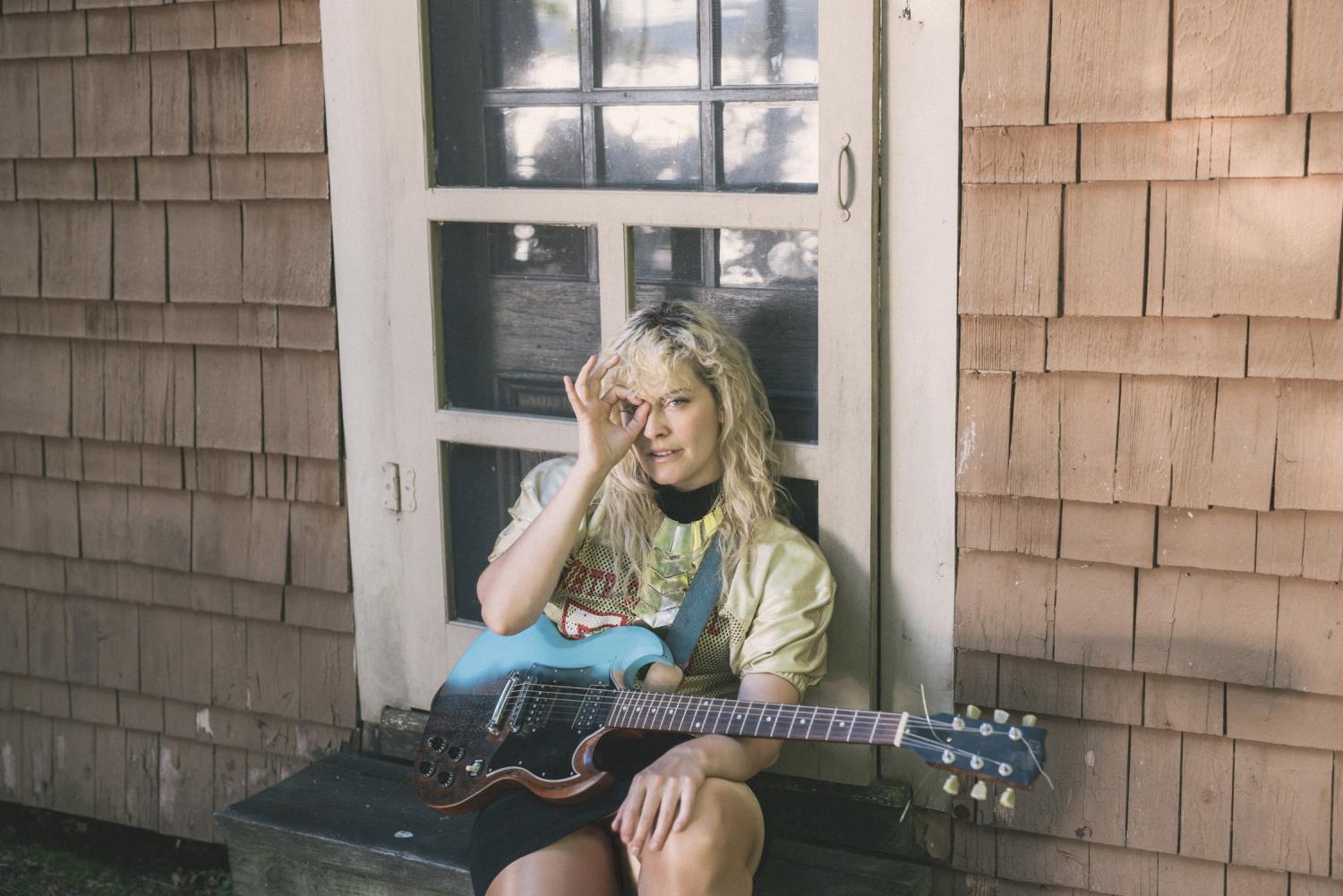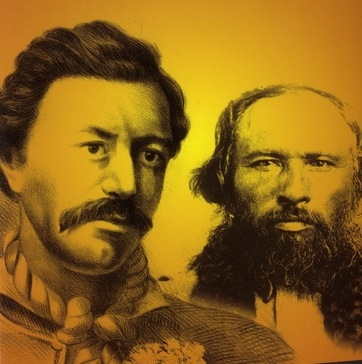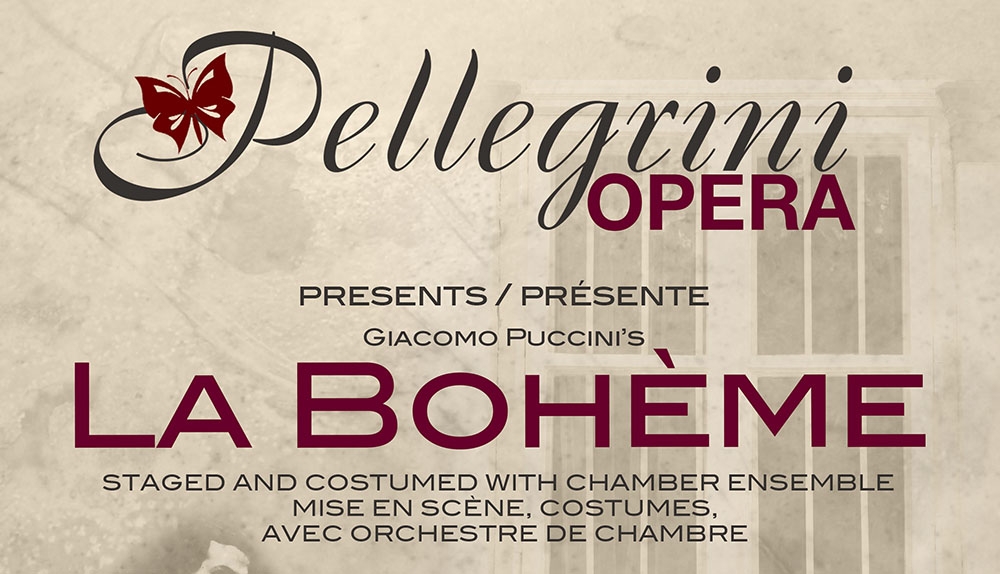
Little Scream’s Creative Cult
Photo by Zach Hertzman
Laurel Sprengelmeyer (aka: Little Scream) thrives on creativity, maybe that's why she's been able to manage her supporting acts while touring her second record. The Iowa-Montreal transfer brought all her musical friends from Sharon Van Etten to members of Arcade Fire, The National and TV on the Radio for her sophomore record Cult Following, making for a record rich in sounds that you may not even notice until repeat listens. Forced to learn her way around the studio to engineer the record as well, Sprengelmeyer made a layered indie masterpiece far beyond the budget she started with. We caught up with Laurel ahead of her show at the 27 Club on December 7 to talk about her steep learning curve, unlimited creativity and how she found herself around a real cult as she started the record.
Ottawa Life: You had everyone from Sufjan Stevens, to Sharon Van Etten, Richard Reed Parry (Arcade Fire) and members of The National and TV on the Radio playing on this record, so how do you guide these voices without them taking over?
Laurel Sprengelmeyer: They were actually all just friends, and it was really natural how they ended up on the record. I was down in New York City for a bit working on the record, working with Sharon and Kyp Malone. While I was recording that record, I was always travelling with a little pre-amp to do my own recording and overdubs. It was a weird non-stop project in that way. All those collaborations happened really naturally so when you hear them in the audio I wasn't really trying to particularly feature any of them. The exception was Kyp, because I really heard his voice being the lead voice there. With that exception, it was more of an organic way of including these people from the National and the Barr Brothers, and others who are less name-namey. Honestly what happened was I made the record, and then people promoting the record brought those names out front and centre, even if they weren't front and centre on the recordings. That definitely speaks to the nature of how media works, because I wasn't trying to make a feature record. I play guitar, keys and sing but I always have people playing with me, it just happened that on this record they were bigger names. I was honoured to have my friends play on this record and join on this creative process.
How has your creative relationship with Richard evolved between these records considering he was a player first and then a creative partner for Cult Following?
He's really central to the process on these records, and he ended up being producer. Once I wrote these songs I brought them to him and talked about ways of approaching the recording. Richard was the one who was central to everything next to the names we just mentioned. He was super busy touring with Arcade Fire at the time of recording too, so I only take production credit because I do a lot of my own recordings and make my own decisions. He also has a new solo record that will be slowly emerging, and I'm a part of that band, so we work on a few things together.
How did the Taiwanese film The Wayward Cloud inspire both your song and video for "Silent Moon"?
One of my best friends was teaching cinema in Hong Kong, and I went to spend a month with her three months back. We were working on a film script that she's working on shopping around now. That film though was how I got introduced to Chinese and Taiwanese film. I was struck by this one scene in the film, which was the spark for the song. It's a mermaid scene, and it's sort of magic realism, but the rest of the film takes place in such a real setting. There's this weird music video that unfolds in the middle of the movie and it stands out so much that I wanted to make it into a video. It's a pretty direct homage.
I also understand you've been trying to help your supporting musicians shoot videos on the road?
It comes in fits and starts, and we've had varying degrees of success with things like that because it's really ambitious. I'm a compulsively creative person, every day that I feel good I just want to make something. It's a challenge to pick which things I work on and which I don't, because you only have so much time. I just think it's really fun and it keeps you inspired to follow through on inclinations, as long as you can commit. I'm probably working on way too many things, but it keeps me going and happy. I wouldn't recommend it to other people to be frank (laughs), but that's just how my brain works.
I heard you had such challenge recording the record that you had to learn some basic engineering to record it?
To be quite frank, it was a nightmare to make this record technically. Part of why that happened was my main engineer had their first child when we were recording this album, and since none of us had kids at that point, we wildly underestimated what that would mean. I thought he would be the engineer on this project, so it naturally unfolded that I had to learn all the file management and doing overdubs. We'd started this ambitious project, and I had to dive in directly to finish it all. We had this 1980s Peter Gabriel style project without the Peter Gabriel budget. So it was a lot of me spending countless weeks and months editing through hundreds of tracks, I didn't do it all on my own but a great deal of it. It was good to learn all this side of production and engineering going forward but it was a crazy learning curve.
You've talked about how you use tons of layers in your painting work, so was it just natural to apply the same technique to music?
I think it's a reflection of my personality to some degree, I'm kind of indecisive and more of an intuitive creator, for better or for worse. You get some really interesting rich complexities out of working that way and you also get to continue your indecision indefinitely, which with oil painting can go on forever. It's also a symptom of the Pro Tools age where I've gone down that wormhole heavily and now want to go back to making music. But it's natural to explore because it's interesting what can happen when you do.
I also heard there was a real cult that you visited when you started writing Cult Following?
It was where I happened to be at the end of touring my first record and at the beginning of looking at my record. It was three weeks down there in Brazil. It was one of those communities where it's all about manifesting, and I was working on my new record. Song ideas and the vision came about there. I named the record Cult Following because it was funny and aspiring. When I was talking to Richard about the record, he said there was a lot of spiritual elements to the lyrics, and it's never framed that way. I thought the title was a light-handed way of handling it, so it turned out that I had been in this place when I started writing. They also did turn into a total cult after we left. They all started wearing white, people were "living on light" where they don't eat food or so they say, so it's not a total exaggeration to call it a cult, it was just less so when I was there.
What are you working on these days or are you just enjoying the grind between records?
It hasn't been creative downtime at all. In fact at the show, we're going to be playing four or five new songs. Tonight at the Ottawa show will be the first time we're playing those songs live which is exciting. After some more dates with Leif Vollebekk we're actually going to be recording nearby in a church in Quyon.













